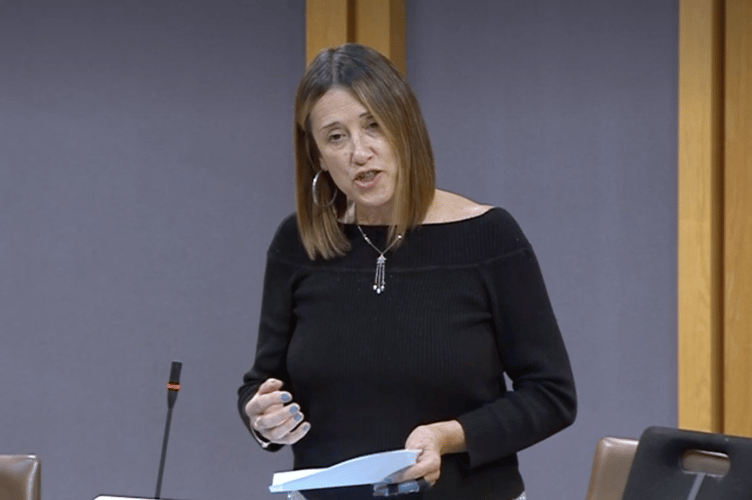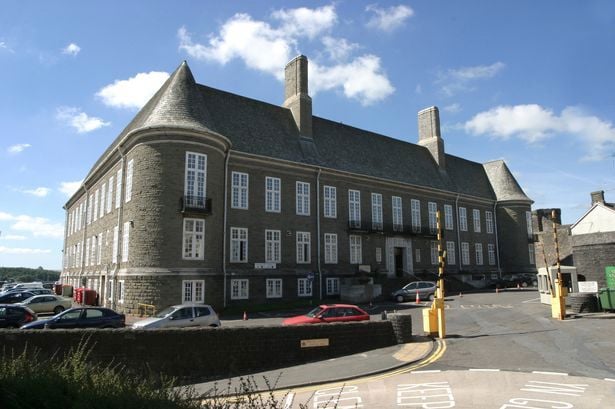Politcians have called on the Welsh Government to provide extra funding to councils across Wales - to protect public services from cuts as well, as families from huge Council Tax rises, such as the potential 25% rise touted for Pembrokeshire.
Additional consequentials of around £25million will be given to Wales following a last minute announcement from the UK Government to bail out English Councils facing a cash crisis.
It was revealed this month that Local Authorities across Wales are currently more than £5 billion in debt according to a report released by the Public Accounts Committee.
Local Authorities are already struggling to provide many day-to-day services due to poor funding, with Pembrokeshire County Council £192,064,000 in debt; Camarthenshire £402,424,000; and Ceredigion £106,867,000.
The report showed the massive amount of debt owed by local authorities right across the UK to lenders, which some say could leave residents facing an “extreme and long-lasting” impact on local services.
It came after Reach Shared Data Unit analysis of data by the Department for Levelling Up showed that councils across the UK owe a combined £97.8 billion to lenders as of September 2023, a sum that is equivalent to £1,455 per person.
It added that the number rises to over £122 billion when other authorities such as police and crime commissioners are taken in to account, with Birmingham said to have the highest levels of debt in the UK at £2.9 billion.
As a result, some council leaders across the country have described issues from years of under-funding from government which has forced them to take out loans and invest in commercial properties just to keep services running.
The Welsh Lib Dems have called for this extra funding to be given to local authorities, to protect public services from cuts as well as to boost schools.
Commenting, the leader of the Welsh Liberal Democrats Jane Dodds MS said: “I welcome the news that Wales will be receiving an extra £25m in funding, something which could prove to be a desperately needed lifeline for our already struggling councils and schools.
“The Welsh Government, to their credit, did protect funding for local authorities in their recent draft budget. But now is the perfect opportunity to not only extend this protection, but to also boost the funding being made available.
“By channelling this extra funding directly to local authorities, we can ensure that our public services, which includes our schools, are not affected by any cost-saving cuts.
“We are currently facing a severe funding crisis in our schools, and this extra funding could go a long way in solving this.

“We recognise of course that this funding is still not enough to fully solve our current financial situation. But we must make the most of the opportunities given to us, especially with a Westminster Tory government who are intent on giving us the bare minimum,” she added.
Plaid Cymru has stated that the Welsh Government should increase the funding floor from 2% to at least 3% to alleviate financial pressures currently faced by Councils.
While there is no guarantee consequentials from England will be allocated to Local Government in Wales, Plaid Cymru will be urging Labour to direct the money to Councils and raise the funding floor to at least 3%.
As Councils in Wales will be approving their budgets at the end of February and are already in consultation with the public on how money may be spent, Labour must provide urgent clarity on their intentions in spending consequentials, Plaid have stated.
Plaid spokesperson for Finance and Local Government, Peredur Owen Griffiths MS said: “Plaid Cymru will be pressing for urgent clarity from the Labour Government regarding how additional funds will be spent in Wales. Consequential funds of around £25million must be used to raise the funding floor to at least 3%, which would significantly benefit many local authorities where day-to-day services are potentially at risk, particularly those in rural areas.
“This must be done swiftly before councils approve their budgets at the end of February.
“In the long term, this announcement again proves how unfair the current funding settlement is for Wales – having to rely on political decisions in England to fund essential services provided through Local Government. Plaid Cymru will continue to fight for fairer funding for Wales.”
Senedd Member, Sam Rowlands, Shadow Minister for Local Government commented: “As a former council leader, I know how difficult it is when the time comes to set the budget for the year.
“There are huge pressure on local budgets, from social care to schools, which together make up over 60% of local government expenditure.
“Now, as councils prepare to set their council tax rates for the next year, the average planned rise across Wales is above 8%.
“In Pembrokeshire, the council has consulted on raising council tax by as much as 25%.
“These sorts of rises will place an unsustainable amount of pressure on household budgets at a time when people are already struggling thanks to global pressures caused by, among other things, the war in Ukraine,” he continued.
So why are we seeing such massive council tax rises on the cards? It’s all because of how councils are funded.
The Welsh Government’s most recent budget has granted a measly 3.1% uplift for councils.
Councils have already warned the Welsh Government that an increase this small will inevitably result in cuts to services that people rely on day-to-day, and significant increases to council tax rises.

“The Welsh Conservatives continue to call for an independent review of the funding formula which determines how much councils get from the Welsh Government,” continued Mr Rowlands.
“Beyond being unfair, it also places additional pressure on hard-pressed families. On average, council tax makes up 20-25% of council funding.
“A much larger proportion comes from the central Welsh Government.
“So when the funding formula isn’t working, we see councils having to balance budgets through massive council tax rises.
“These rises are indicative of the enormous burdens that local authorities are expected to shoulder thanks to a raw deal from Welsh Government, who have spent huge amounts of money on vanity projects while the provision of public services in Wales suffer and council budgets are balanced on the backs of households in Wales. This is a political choice.
“This is why we’re also calling for a cap on council tax rises.
“The cap would mean that any rise over a 5% threshold would have to be approved by a local referendum.
“This would not only ensure that council budgets are focused on the things that really matter, but would also ensure that Welsh Government funded councils properly, instead of giving them a raw deal and expecting them to levy the difference on local residents.
“It would protect families from ridiculous rises, like the potential 25% rise we’ve seen in Pembrokeshire.
“A cap would also mean that councils would have to give consideration to the idea of using their reserves. Councils save money into a rainy-day fund.
“They’re rightly reluctant to dip into it unless times are really hard. But I would argue that those times are now.
“People are feeling the pinch at the moment, and many councils could use just a very small portion of their reserves to keep council tax rises at a more realistic level.
“With some councils sitting on more than £200 million in usable reserves, they should be strongly encouraged to use some of this money to cover shortfalls, even if it’s just a short term measure to help people while cost of living pressures continue to have an impact.
“There are huge pressures on councils at the moment, piled onto them by the Labour Welsh Government’s failure to properly prioritise their funding. Unless we reform the funding model, Welsh Government will continue to force councils to pass those pressures onto struggling families at the worst possible time,” he added.




